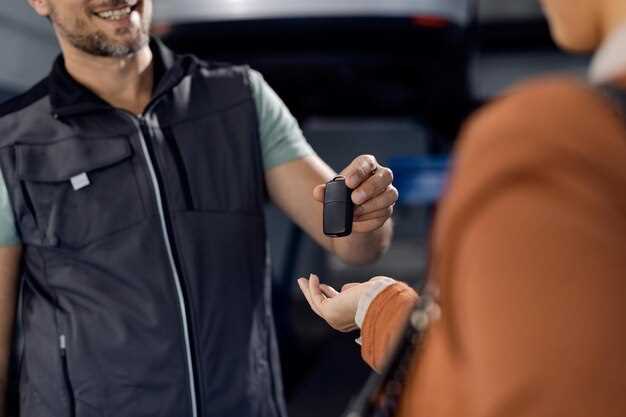Pros and cons of buying cars at auction

In recent years, the popularity of purchasing used cars at auctions has surged among buyers seeking a great deal. Auction settings present an intriguing environment where car enthusiasts and regular consumers alike can compete for vehicles at potentially lower prices than traditional dealerships. However, like any purchasing method, buying a car at an auction comes with its own unique advantages and disadvantages.
On one hand, the appeal of acquiring a used car at auction lies in the potential for significant savings. Many participants are drawn to the thrill of the bidding process and the opportunity to find high-quality vehicles at a fraction of their retail value. Yet, prospective buyers must also navigate a landscape fraught with risks, including limited vehicle history, potential hidden damages, and the absence of a warranty. Understanding both sides of the auction experience is essential for making an informed decision.
As we delve into the pros and cons of buying cars at auction, we’ll explore not only the financial implications but also practical considerations that every buyer should weigh before participating in an auction. Whether you’re a seasoned bidder or contemplating your first venture into the auction world, this guide will equip you with the knowledge necessary to approach this exciting marketplace with confidence.
Understanding the Bidding Process for Used Vehicles
The bidding process at an auction for used vehicles can be both exciting and intimidating. It requires participants to be both strategic and well-prepared to secure the best deals. Typically, the process starts with a preview of the vehicles available for bidding. During this phase, potential buyers are encouraged to inspect the cars thoroughly, checking for any signs of damage or mechanical issues.
Once the auction begins, bidders raise their hands or use paddles to place bids on the vehicles they are interested in. Understanding the auctioneer’s rhythm is crucial; they often move quickly, and careful attention is necessary to avoid missing an opportunity. Bidders should set a maximum price they are willing to pay for each vehicle to prevent impulsive decisions driven by the competitive atmosphere.
Auction formats can vary. Some are absolute, meaning the highest bidder wins regardless of the price, while others may have reserve prices, where the vehicle must meet a minimum bid to be sold. Being aware of these differences can significantly affect bidding strategies. It’s also essential to know the auction’s fees, which can impact the overall cost of acquiring a vehicle.
As the auction nears its end, tension can increase. Bidders should be prepared for “sniping,” where competitors place last-minute bids to secure a vehicle at the last moment. Knowing when to bid aggressively and when to hold back can be the difference between winning a vehicle or losing it to another eager bidder.
Successful bidding requires a mix of research, observation, and strategic planning. Potential buyers should familiarize themselves with the auction’s rules and procedures, allowing for a smoother and more informed bidding experience. Engaging with auctioneer staff and asking questions can also provide valuable insights into the vehicles on offer and the specifics of the bidding process.
Evaluating Vehicle Condition Before Bidding

When considering buying used vehicles at auction, one of the most critical steps is evaluating the condition of the car. This process can determine whether you will make a wise investment or end up with costly repairs.
Visual Inspection: Start with a thorough visual inspection of the exterior and interior of the vehicle. Check for rust, dents, and paint inconsistencies. Examine the windows, mirrors, and lights for any damage. Inside the car, inspect the upholstery, dashboard, and any electronic features. Look for signs of wear and tear that may indicate how well the previous owner maintained the vehicle.
Mechanical Condition: If possible, take the time to assess the engine’s condition. Listen for any unusual noises while it’s running and observe the exhaust for smoke. Check the fluid levels and look for leaks, especially oil and coolant. Don’t forget to inspect the brakes, tires, and suspension. Each of these components can significantly impact the vehicle’s performance and safety.
Vehicle History Report: Obtain a vehicle history report using the car’s VIN (Vehicle Identification Number). This report offers essential information about previous accidents, title issues, and maintenance records. Understanding a vehicle’s past will help you gauge its reliability and overall condition before you decide to bid.
Test Drive: If allowed, take the car for a test drive. This experience offers valuable insight into the vehicle’s driving performance, including handling, braking, and acceleration. Pay attention to any strange sounds or behaviors during the test drive as they can be indicators of underlying issues.
By carefully evaluating the condition of used vehicles before placing your bid, you greatly increase your chances of securing a dependable car while minimizing the risk of unexpected expenses down the line.
Cost Considerations: Fees and Hidden Expenses in Car Auctions

When considering the purchase of a used car at auction, it is crucial to understand the various costs involved beyond just the hammer price. Many buyers focus solely on the bid amount, but additional fees and potential hidden expenses can significantly increase the total cost of acquiring a vehicle.
Here are some key fees and expenses to consider:
- Buyer’s Premium: Most auction houses charge a buyer’s premium, which is a percentage added to the final bid price. This fee can range from 5% to 20%, depending on the auction house.
- Registration and Title Fees: After winning a used car at auction, buyers must register the vehicle and obtain a title. These processes often incur fees that vary by state.
- Transportation Costs: If the auction is not local, buyers may need to arrange for transportation or shipping of the vehicle, adding to the overall expense.
- Pre-Purchase Inspection: It’s advisable to have a used car inspected before bidding. The cost of this inspection, while necessary, is an additional expense to consider.
- Repairs and Maintenance: Many used cars sold at auction may require immediate repairs or maintenance, which can lead to unexpected costs post-purchase.
- Sales Tax: In addition to the purchase price and fees, buyers must pay sales tax on the total of the winning bid and buyer’s premium, adding another layer to the overall cost.
Understanding these fees and hidden expenses is vital for anyone considering buying a used car at auction. Being aware of the total financial commitment can help buyers make informed decisions and avoid surprises that could exceed their budget.

